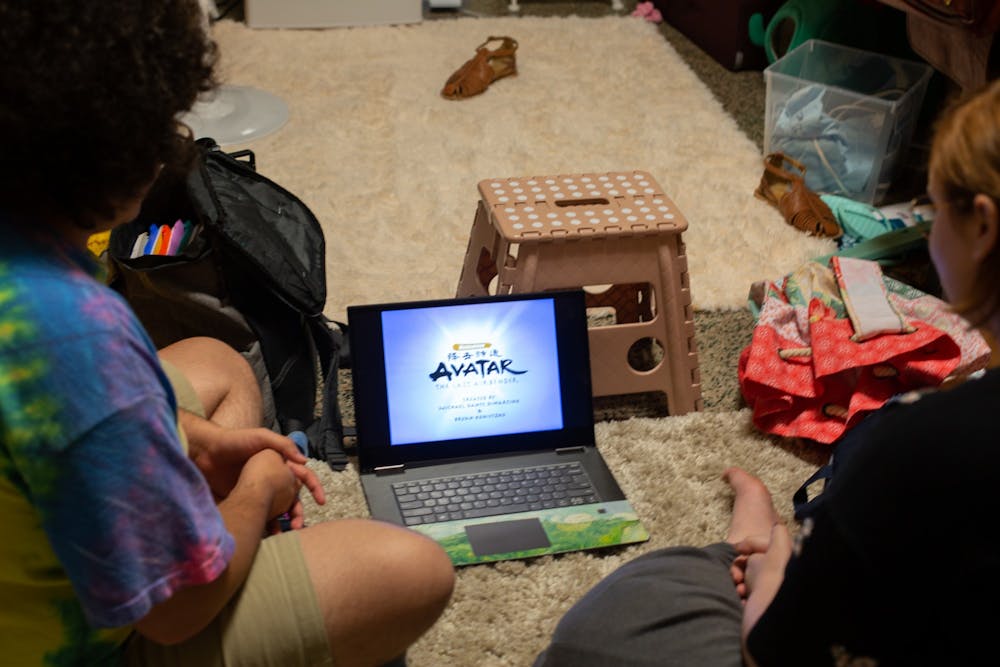The first book I ever bought was an adaptation of "Avatar: The Last Airbender." It was the spring of 2006, and as a kindergartner without cable TV, I had no idea what "Avatar" was, nor the phenomenon it would become. All I knew was that, as I perused the book fair offerings, feeling rich as a king with $10 in my pocket, I had found something special.
Set in an Asiatic world where the people of four nations “bend” the four elements through martial arts, the animated TV series revolves around a 12-year-old Air Nomad monk, Aang. Aang is the eponymous Avatar: the world’s singular peacekeeper who, wielding air, water, earth and fire, maintains balance between the four nations.
When the story opens, however, Aang has been frozen in an iceberg for 100 years. In his absence, the Fire Nation has unleashed a century-long campaign of genocide and colonization. Aang and his friends spend the series trying to stop the Fire Nation from fully conquering their world.
Even in its first run on Nickelodeon, from 2005-2008, “Avatar” was wildly popular, drawing millions of viewers and shattering records. This past summer, as the pandemic raged and protests bloomed, it surged back into public consciousness after its addition to Netflix, becoming one of the most-watched shows in the country. Excitingly, Netflix has announced plans to create a live-action adaptation, hopefully wiping from our collective memories Hollywood’s unbearably grim, whitewashed first attempt.
The representation in "Avatar" — all of the characters are people of color — drew me in as an Asian American kid living in Wilmington, North Carolina, which even today is only 1.4 percent Asian. It’s richly steeped in Asian and Native culture and philosophy, from the Hindu-influenced reincarnation cycle undergone by the Avatar, to the occasional on-screen “Asian squat,” to Uncle Iroh’s beloved jasmine tea.
In the early 2000s, people of color rarely made it on screen without falling into some racist trope. Avatar wasn’t perfect, but seeing not just a representation, but a celebration of both kids who looked like myself and the rich culture my parents and millions of others carried across oceans, was monumental.
However, what makes “Avatar” truly unique is the balance it strikes between humor and grief, and its exploration of the complex issues of morality, justice, and peace. It’s a kid’s show, without a doubt — fart jokes and other gags abound, most memorably about a long-suffering cabbage vendor — but unlike many other series, “Avatar” doesn’t shy away from the consequences of war and genocide, which, after all, don’t shy away from children, either.
Sometimes, episodes are eerily prophetic. In the first season, Aang’s discovery that a new friend secretly invents war machines for the Fire Nation echoes the reports of U.S.-made bombs killing Yemeni children. In the second season, the strict propaganda and surveillance in Ba Sing Se mirrors authoritarian governments, from North Korea to Russia. Refugees cross dangerous waters both in ATLA and the real world in pursuit of safety for their children. And as many viewers have pointed out online, Earth Kingdom representative Ju Di’s mantra of “There is no war in Ba Sing Se” is striking similar to White House Press Secretary Kayleigh McEnany’s declaration that the U.S.’s COVID-19 mortality rate is “one of the lowest in the entire world.”
Moreover, “Avatar” embraces the complexity of morality and humanity. The show takes great care to differentiate between the generals and politicians who drive policies and battles from their high towers and the people who, regardless of their side in conflict, suffer the costs.



